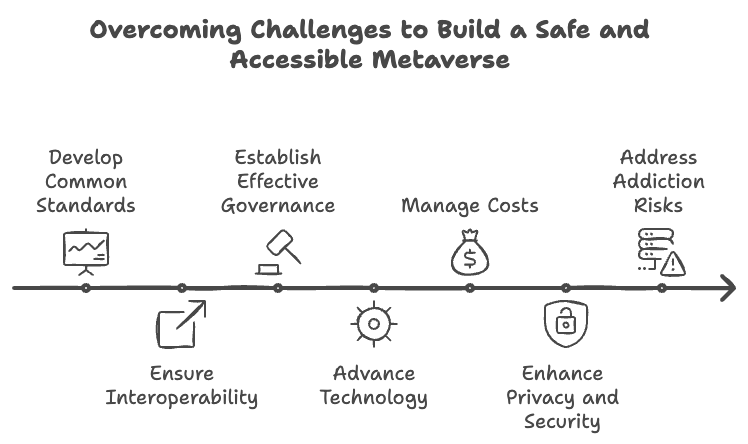
The Industrial Metaverse by the Author
Mention the Metaverse and it’s the Consumer experience that springs to mind. However, there’s also the Industrial and Enterprise Metaverses.
In this week’s newsletter we explore the Metaverse via all 3 experiences. Each is defined, the overall challenges outlined, with concluding arguments on why the Industrial Metaverse is the future of business.
Metaverse Definition.
Neal Stephenson1 coined the phrase “Metaverse” in his book Snow Crash. He defines it as
“where humans, as programmable avatars, interact with each other and software agents, in a three-dimensional virtual space that uses the metaphor of the real world”.
Metaverse Types & Experiences.

Metaverse Types by the Author
MIT Technology outline 3 metaverse sectors in their report “The Emergent Industrial Metaverse”2 :
Industrial
Simulated machines, factories and other solutions, enabling real world problem solving in industry and manufacturing.
Enterprise
Technologies enabling immersive business collaboration.
Consumer
Digital worlds and immersive social spaces for shopping, gaming and entertainment.
The report outlines market investment of $180 billion by 2030, with:
Industrial the largest at $100 billion
Consumer at $50 billion, and
Enterprise with $30 billion
As a comparison the IDC’s 3 forecast for Generative AI investment for 2026 is $300 billion.

Overcoming Challenges by the Author
The metaverse is an evolving technology.
There’s also a lack of regulation and standards. Agreeing common standards, for example on data formats and security protocols, will help ensure the metaverse is a safe and reliable environment.
Interoperability. Unless metaverse platforms are able to communicate with each other, users are locked into single platforms, limiting experiences.
Effective Governance. The metaverse must be governed in a way that protects users’ rights and interests. A combination of government and self-regulation could achieve this.
Simulated factories, immersive experiences and gaming requires a high level of technology, knowledge and skills - expensive!
In providing all 3 experiences, the metaverse collects a lot of data. With consumer data, there’s always the potential for malicious use — identity theft, fraud etc.
Lastly, immersive experiences are addictive 4, leading to social isolation, dependency and mental health issues.
Metaverse Losses.
Meta’s Reality Lab has reportedly lost $50 billion since 20205 .
If the company synonymous with the Consumer Metaverse is making significant losses, what hope is there for the Industrial Metaverse?

Unleashing the potential of the Industrial Metaverse by the Author.
The Industrial Metaverse is the future of business for the following reasons:
Differing Use Cases: The Industrial Metaverse6 focuses on real world issues, it isn’t Consumer escapism or Enterprise collaboration
Clearer Outcomes: The Business Case is clearer, more defined whether it’s cost savings, training simulations or productivity gains
Complexity Modelling: There’s the added bonus of being able to model and simulate complexity in a controlled environment using real world data and processes.
Significant Returns / Insights: Potential for significant returns and insights by modelling real life scenarios in controlled environments
The car manufacturer Renault, states that
“By 2025, the Metaverse will generate savings of €320 million, plus €260 million in inventory savings, a 60% reduction in vehicle delivery time, a 50% reduction in the carbon footprint of vehicle manufacturing and a contribution to the 60% reduction in warranty costs targeted by the Group.”
Take a look at the full Renault case study below.
In Conclusion.
Generative AI is attracting more investment.
However, the Industrial Metaverse is re-shaping how we work, innovate, and solve problems. In blending the physical and digital worlds, a new playground7 is created allowing businesses to simulate, optimise and predict their way out of real-world problems.
This is why the Industrial Metaverse is more than a cool concept, fancy tech - it's the future of business!
3 Worldwide Spending on AI-Centric Systems
4 Addiction, crime and data breaches: The metaverse could become a wild west if we’re not careful
5 Meta’s Reality Labs posts $4.5 billion loss in second quarter
6 How the Industrial Metaverse will be different to the consumer one - and why it matters
7 Siemens and NVIDIA partner to build the Industrial Metaverse

